Review for The Lodger
For a while, the only versions of ‘The Lodger’ available to Hitchcock fans was a grubby transfer of a nasty print, barely viewable and lacking the sepia and blue tinted footage which heralded from better prints. Network have done the decent thing and given it a modest clean-up (it’s still quite ‘flat’ and lacking in contrast though some of that could be attributed to London fog). Previous editions have also included an entirely unsympathetic soundtrack. So Network have replaced that – with another entirely inappropriate soundtrack. Hitch would turn in his grave! But more about that later.
At its most basic, you don’t need to be a fan of either silent film or Hitch to get something out of ‘The Lodger’. It’s a spooky, mesmerising thriller, often dream-like and surreal, and Ivor Novello’s hammy tortured soul routine represents a template for gothic leads that works to this day (think ‘Twilight’). Made in 1927 it was Hitch’s first big screen thriller telling the story of a young woman called Daisy whose mother takes in a lodger. Her favourite squeeze, Joe, is a detective, and he soon gets suspicious of the lodger. Could he be the mysterious ‘Avenger’ (a thinly disguised ‘Jack the Ripper’) who has been on a killing spree in London, murdering young girls with ‘golden locks’?
We in the audience are soon encouraged to join in the suspicions as we see the lodger, the dreamy-eyed Ivor Novello, creep around the house and into the street – often in the same time-frames as the latest murder. And why does he pace up and down his room so? Once he starts a romance with Daisy, suspicions (and jealousy) are aroused further. Before long he is arrested by Joe and his lodgings searched.
I won’t spoil the twist in the tale, but there are some wonderful moments along the way. This was still relatively early cinema, where many were still treating the medium like ‘recorded theatre’ though Hitch was already contributing to the language of cinema with his transitions and sequences. Watch the superb shot from above, for example of the stairway and the pale white hand running down the bannisters. Or the intercuts between the mother in bed, and the creaking footsteps elsewhere.
Apparently Hitch makes one of his ‘where’s wally’ styled cameos though I didn’t spot him. I think I was too engrossed in the movie for that!
So a great movie. But what of this new soundtrack?
This idea of letting new composers free on old works is all very well but why do they tend to go so badly awry? (Who let ‘Queen’ loose on Fritz Lang’s Metropolis for example?). Here Network commissioned composer Nitin Sawhney to create the soundtrack (who used the LSO to record it). I daresay he’s a very capable composer but after a very short while this twisting, circular and incongruous concoction started to get mighty tiresome. Why didn’t it reflect what was happening on the screen better? Apart from one triangle signalling a doorbell, I cannot recall a single instance where the music reflected either the literatl action nor even the mood and tension in the right places. Even a creaky old gothic TV soap like ‘Dark Shadows’, which was recorded ‘live’, acheieved this most basic of soundtrack principles.
To add insult to injury, and as an example of the pure unfiltered pomposity of the composer, we even have to endure a sub-Pet Shop Boys vocalised nursery rhyme during an otherwise bewitching scene where the lodger and Daisy are falling in love. The sheer arrogance of the approach is shocking. In fact – I admit – it so annoyed me that I leapt out my seat and shouted at the screen. It served only to take us out of the movie and into the soundtrack, rather like an insipid MTV video where the movie became the illustration to the song rather than the reverse. The best soundtrack music should hardly be noticed – a part of the integral whole.
In disbelief, and to be fair and balanced in my view, I decided to watch the interview with Sawhney to listen to the case of the defence but this only reinforced my view that here was a man who had the highest possible opinion of himself and his abilities, classing himself alongside the ‘greats’ he professes to so admire.
You get an audio CD with the set (though not with my check disc) and it may play well outside of the movie so this is less about taste and more about why everyone I’ve spoken to who saw the movie in its theatrical run hated the soundtrack in-situ. In short – it didn’t work. And the ‘Daisy’s song’ moment was a crime against good taste and common sense – not to say completely disrespectful of the art it was purporting to support.
So – in short – a great film. Just steel yourself for a disappointing score. Or better still, watch it with the sound-down and with a spooky piece of music on instead.
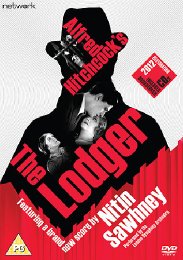



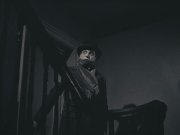
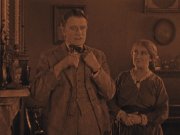
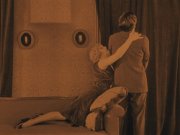
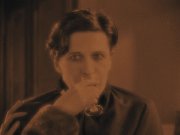
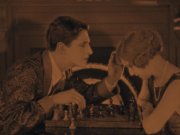
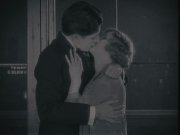
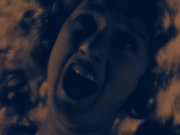









































Your Opinions and Comments
Be the first to post a comment!